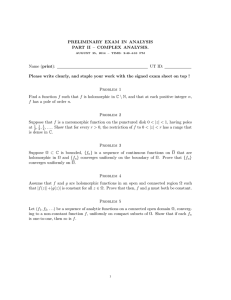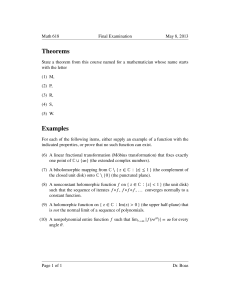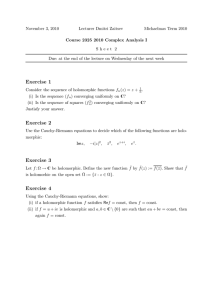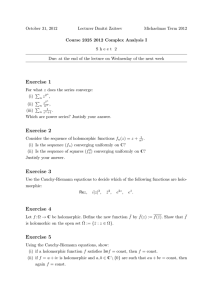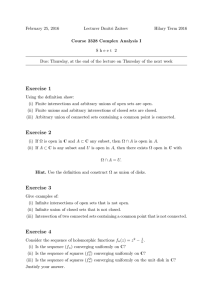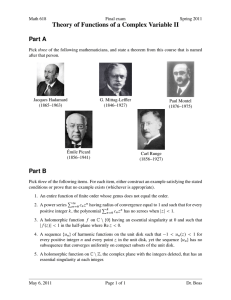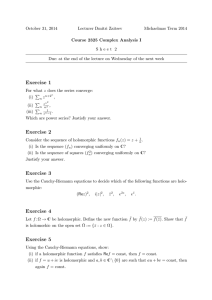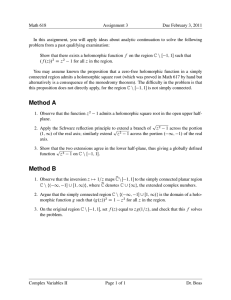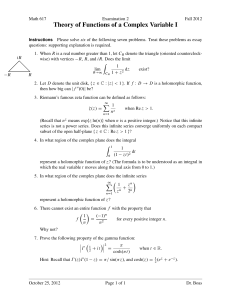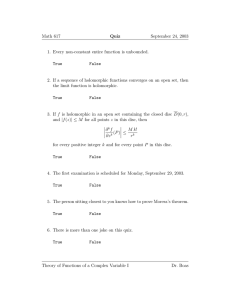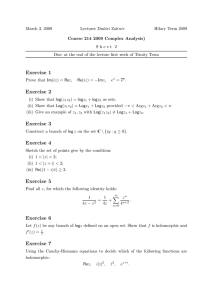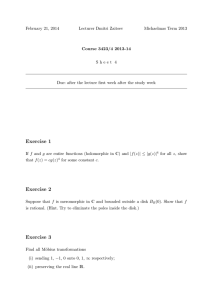Part A Final Examination
advertisement
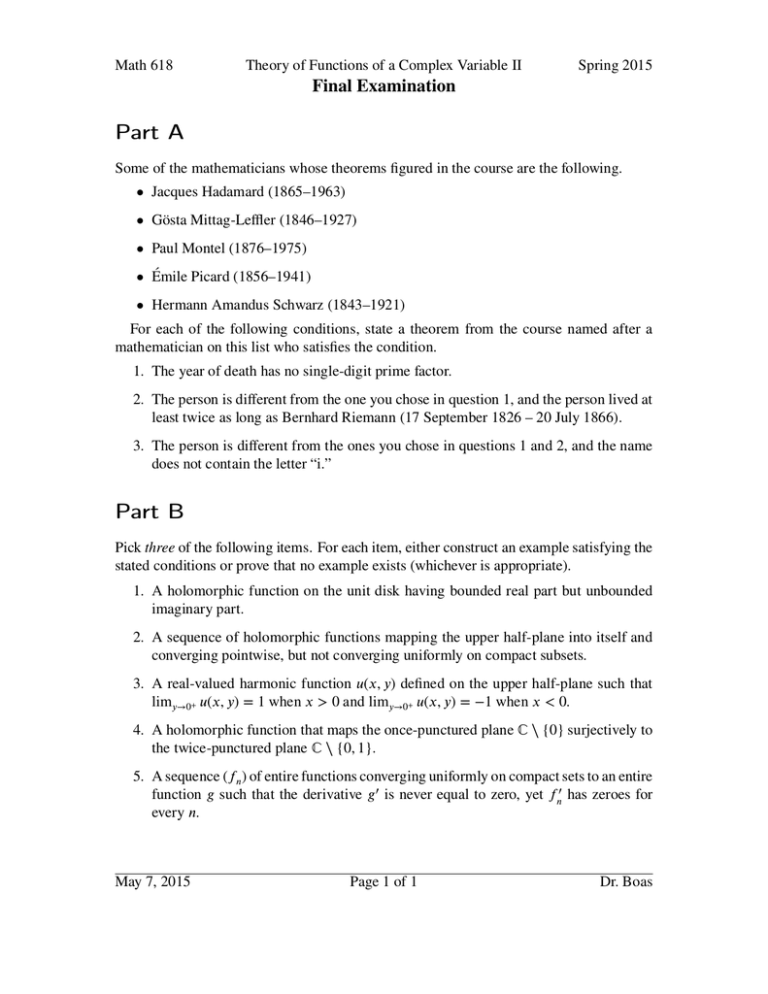
Math 618
Theory of Functions of a Complex Variable II
Spring 2015
Final Examination
Part A
Some of the mathematicians whose theorems figured in the course are the following.
• Jacques Hadamard (1865–1963)
• Gösta Mittag-Leffler (1846–1927)
• Paul Montel (1876–1975)
• Émile Picard (1856–1941)
• Hermann Amandus Schwarz (1843–1921)
For each of the following conditions, state a theorem from the course named after a
mathematician on this list who satisfies the condition.
1. The year of death has no single-digit prime factor.
2. The person is different from the one you chose in question 1, and the person lived at
least twice as long as Bernhard Riemann (17 September 1826 – 20 July 1866).
3. The person is different from the ones you chose in questions 1 and 2, and the name
does not contain the letter “i.”
Part B
Pick three of the following items. For each item, either construct an example satisfying the
stated conditions or prove that no example exists (whichever is appropriate).
1. A holomorphic function on the unit disk having bounded real part but unbounded
imaginary part.
2. A sequence of holomorphic functions mapping the upper half-plane into itself and
converging pointwise, but not converging uniformly on compact subsets.
3. A real-valued harmonic function 𝑢(𝑥, 𝑦) defined on the upper half-plane such that
lim𝑦→0+ 𝑢(𝑥, 𝑦) = 1 when 𝑥 > 0 and lim𝑦→0+ 𝑢(𝑥, 𝑦) = −1 when 𝑥 < 0.
4. A holomorphic function that maps the once-punctured plane ℂ ⧵ {0} surjectively to
the twice-punctured plane ℂ ⧵ {0, 1}.
5. A sequence (𝑓𝑛 ) of entire functions converging uniformly on compact sets to an entire
function 𝑔 such that the derivative 𝑔 ′ is never equal to zero, yet 𝑓𝑛′ has zeroes for
every 𝑛.
May 7, 2015
Page 1 of 1
Dr. Boas
